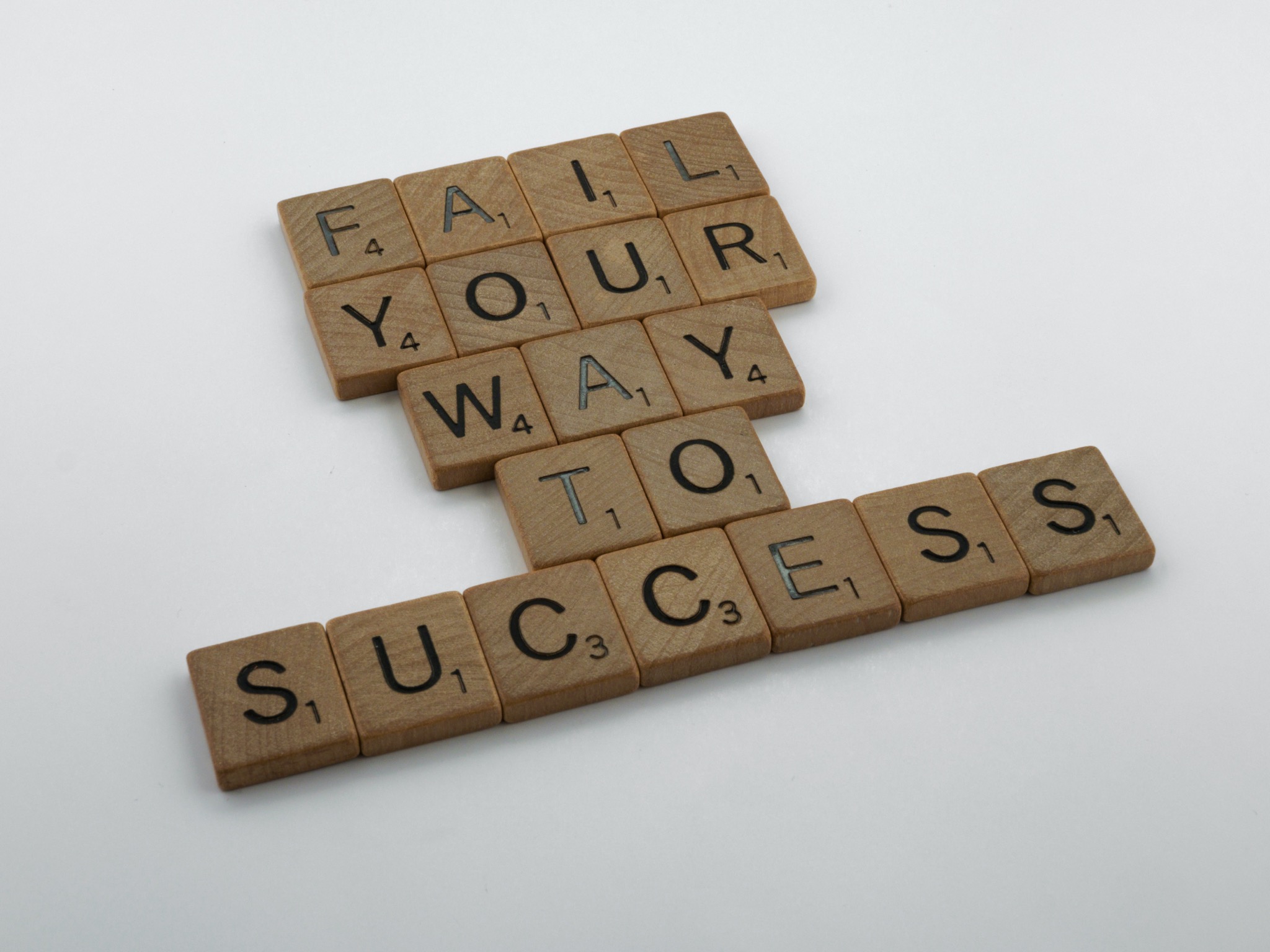- Published on
Failure and Salesforce Exams
- Authors

- Name
- Emily McCowan
- @heyemilyhay

Taking The Easy Path - Avoiding Failure
When I was at school, success came really easily to me. I never failed an exam or assignment, I seemed to stay in the range of A's and B's without really trying at all. I was over-confident. I thought I was special, that I was just so much smarter than my peers, and I thought that things would always come easily to me.
As I got into my mid to late teenage years, some subjects became more complex, but I still hadn't really learned how to learn so I kept goofing off and cruising along. I started failing - but I still didn't know how to grow from these failures, nor did I really know how to learn, so I opted out of those classes where I could and focused more on the classes that I could get by in without having to put in the hard work. Eventually, in my final year of high school I actually contracted glandular fever and was off for months. Of course, that meant that even my flying-by-the-seat-of-my-pants, last minute style of study wasn't enough to keep me sustaining a passing grade when I wasn't even in class - I was facing having to repeat my final year of high school.
I was horrified by the idea. All of my peers would be off to uni or starting in jobs while I was re-taking high school - how humiliating! So instead of failing - even for a reason that was out of my control - I dropped out of high school altogether. My excuse was solid - I could say, "yeah, I may have dropped out of high school, but it was because I got sick, I'm not a failure!"
And actually, that's interesting language, isn't it. What does it mean to be "a failure"? Identifying so strongly with failure seems extremely limiting - while everyone can fail at times, that doesn't mean that we are a failure of a person.
Embracing failure, failing fast, failure as a lesson - I'm sure you've heard these all before. This post is far from the first time someone has written about the benefits of failure and it won't be the last, either. I want to share with you the times I have failed and the growth that I've had as a result of failing. My goal is to make the idea of failing a little less scary for you so that you too can fail and grow from it.
One of my all-time favourite quotes about taking the safe path is from Dune - "And always, he fought the temptation to choose a clear, safe course, warning 'That path leads ever down into stagnation'."
Times I Have Failed
How have I failed? Let me count the ways...
- I dropped out of high school
- Pretty much every diet I've ever tried
- I have failed many times at running a sub-1 hour 10k
- I got fired one time because I had an argument with my boss
- I can never beat my husband at fighting games, he destroys my button-mashing ass every time
- I just checked my webassessor account and at some stage I have failed the following Salesforce exams: Salesforce Admin Winter '13 maintenance (back when you had to take a pass/fail maintenance exam to keep your cert!); Sharing and Visibility Designer; Integration Architect Designer; Identity and Access Management Designer; CTA board; Community Cloud Consultant; Platform Dev 1. Barring the CTA board I have re-sat and passed all of these certs (and my CTA re-sit will happen soon!)
Objectively, I'm pretty successful in my career right now, and I've still got a couple of decades ahead of me to fill with goals to achieve - and if I want them to be good, I'm going to have to fail some more on my way to achieving them. In the tech world particularly, if you stay where you are because it feels safe, you'll quickly fall behind.
Failure and Salesforce Exams
Salesforce exams are interesting beasties.
Barring the CTA board, they have to be scored automatically, therefore the questions can be worded in a fairly tricky way to enable multi-choice answers without giving the answers away completely. I think there are two things you need to study in order to pass any given Salesforce exam:
- The exam subject matter, and
- How to read and respond to Salesforce exam wording itself.
For 1, there's plenty of study content out there, so I won't bother linking to resources. But how do you study 2? Personally, I think you just need to give it a go - try the exam, even if you fail it the first time, but exposure to the format and type of questions you're going to face is going to help you understand better how to pass the exam next time. I've also used Focus on Force's practice exams before as well and they're about as close as I've seen to an approximation of the question style that you'll see in a real Salesforce exam (not sponsored, just my genuine take).
My advice is to just book the exam, study and give it your best shot, but don't worry if you fail - it just means you know more for the next time you take the exam, and you're closer to getting that pass.
Summary
Failure is something we all experience, but it can shake our confidence badly when we experience it. If we don't surrender to failure and allow our failures to help us grow, if we avoid failure, then we will stagnate. To succeed at the wild dreams and goals you have for your life, you're going to have to fail at some point.